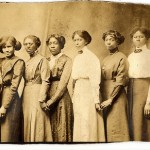A social media trend took over this summer. As I scrolled through my feed, my friends began posting their “7 Day Challenges” ranging from books, music, movies, and personal photos. The challenge required participants to post pictures of their seven favorite books, albums, or movies without any comments. Seems easy, right?
I found this one week challenge fascinating, especially when my friends posted their fave books. (I’m an English teacher. I nerd out on books). One particular friend, whom I admire as an incredible educator, played the game and posted several of my favorite titles. I loved leaving her comments daily under her posted book cover photos. However, this friend is one who sees rules as mere guides. She sidestepped the “no comments” part of the challenge by engaging in conversations as friends commented below her pictures.
On the third day she posted, I didn’t recognize the title, “Evicted” by Matthew Desmond. Through the comments, she encouraged her educator friends to read it. She commented, “If you’ve ever cared about the baggage that students bring with them to the public school setting, look no further than this read.” As a trusted colleague and friend, I immediately ordered the book.
One word: WOW! Matthew Desmond follows eight families in Milwaukee between 2008-2009 through their struggle to obtain and or maintain a roof over their heads. Winner of a Pulitzer Prize, Desmond opens readers’ eyes to the struggles of Americans living in poverty, many who rely on government assistance to survive. Each chapter is riddled with heart-wrenching stories coupled with meticulously researched data on the American housing market including the history of urban living and the challenges underserved families experience.
As I turned each page, I thought about my students. I have heard the excuse “We moved over the weekend. I couldn’t get my homework done” more times than I can count. And until this book, I never really believed my students. I grew up in two houses during my childhood. Following college, I have lived in two apartments and two houses. Reading this book brought to light the transient and chaotic lives my students endure. Desmond often describes families receiving eviction notices with less than five days to leave or face police actions. I began to believe that my students were sadly telling the truth.
This book also reminded me of an experience I described in a previous blog post that took me around the neighborhoods and communities of my students. This experience left a deep and impactful impression, and this book brought those feelings rushing back. It also reminded me that it is so easy to get caught up in the day to day “get it done” teacher mentality. It reminded me to stop and think about the baggage, figuratively and literally, our students bring to school daily and how I must act with compassion and without judgment.
I cannot recommend this book enough. Regardless of the age or content you teach, this book offers insight and the opportunity to think about your students in a new way.
As my friend commented, every educator should read this book. But I now ask, what other books should every educator read? Leave a comment below. I would love to continue this enlightening journey!









Comments 16
One book I really enjoyed was Tales from the Teacher’s Lounge. I read it right when I started teaching and needed a break from reading books about policy and procedures.
I added this book to my Amazon Wish List!
This sounds great too! Thank you for sharing!
So often I grab a book for entertainment, and often I nerd out reading biographies and other non fiction…. and every once in a while a book on social commentary comes along and all I want to do is get people to read it so we can talk about it!
(Some I can immediately recall are the Freakonomics series by Levitt & Dubner, Missoula by Jon Krakauer, and most recently Ghettoside by Jill Leovy)
I totally get this passion to talk about Evicted!
What other gripping social commentaries can we all recommend to one another?
James, have you read Tara Westover’s “Educated” yet? It’s about a girl who didn’t attend school until she was 18 years old. She eventually makes her way to Cambridge, but her journey is incredible and opens up innumerable discourses about public schooling.
I am using “Educated” with my Pre AP students this year! I can’t wait for the discourse with my students!
Ordering now. Sounds like an excellent recommendation. I love the idea of teachers engaging each other with non-pedagogical book reviews.
Thank you! You will not regret reading this book!
One book that I strongly recommend is It Won’t Be Easy: An Exceedingly Honest (And Slightly Unprofessional) Love letter to Teaching by Tom Rademacher. This is one teacher that I would love to come out to Arizona for an event. I found myself laughing so loud that I would spit out my coffee and also being so humbled that I had to stop and reflect on my practice. He shares some powerful social justice personal anecdotes in this book.
This sounds perfect read after a long, stressful day in the classroom. Ordering! Thanks, Donnie!
Understanding the culture my students live in can be extremely difficult when it starkly differs from my past and currentl reality. I moved an extreme amount due to my dad being a civilian contractor on military projects, but we were middle class. Poverty is something I have had to intentionally learn about. The more I learn, the more my heart breaks for my students. I don’t lower my standards, but I sure do respond differently. I have softer responses to their unbelievable stories…they are kids and have no control over the decisions of the adults in their lives.
Very true! They don’t have control over the decisions of the adults in their lives. This book definitely brought that to light.
Thank you for sharing this title. It sounds great!
Adding this to my list! Thank you, Amethyst!
I missed the movie called Tell No One based on a book called My Abandonment by Peter Rock. It opened my eyes to the off-the-grid, marginalized culture. I also, ride my bike to work and the path goes under several bridges where homeless live. I always wonder about their stories and how thin is the line between us. Thanks for your recommendation.
Very interesting! I would love to see the movie!